On the Third Day of Christmas…
Wanting to join the general spirit of holiday celebration, I first had in mind that I wanted to dedicate this post to Christmas. But I’ve decided to do something a bit different–instead of looking at the Christmas itself, let’s look at the Christian meaning behind the day this post will first be published, December 27th. But because I think simply following the calendar is a bit dull, I’ve wandered off that topic into some fantasy world holiday speculations at the end of the post.
First, did you know today is the Third Day of Christmas? Everyone from liturgical churches are gonna say, “Of course,” but I in fact had no idea for a long time. I was in church as a child up to about when I was 11 or 12–then my mom withdrew from church (based on some issues) and pretty much never came back. What I had attended was a generic sort of “Evangelical” church and when I started going to church again on my own at age 17, it was a Baptist church. For Baptists and Evangelicals in general, there’s really only one day of Christmas–Christmas itself. Well, maybe a bit of celebration on Christmas Eve, too, but still. So that’s why as a kid I had no idea when the 12 days of Christmas were in relation to Christmas Day itself–did they build up to Christmas, from like the 13th? Or was Christmas Day in the middle of the Christmas season, Day Seven (or 6, or 8)? Or was Christmas Day the first day of the twelve days (which is the actual answer)? I had no clue.
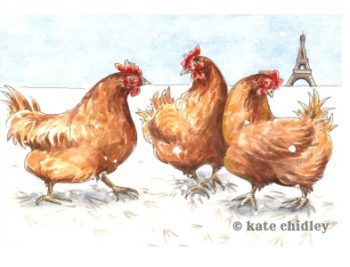
Image Credit: http://www.katechidley.com
Speaking of things I didn’t have a clue about, you know that song that starts out: “On the first day of Christmas, my true love gave to me…”? When I was in single digits I used to think that song was additive–so instead of recapping all the previous days, I thought the gift-giver each day gave all the things listed again. That would total out at 12 partridges in 12 pear trees (1 each per day), 22 turtle doves (2 each for 11 days), 30 French hens (3 x 10), 36 calling birds (4 x 9, etc), 40 golden rings, 42 geese a-laying, 42 swans a-swimming, 40 maids a-milking, 36 ladies dancing, 30 lords a-leaping, 22 pipers piping, and 12 drummers drumming. Which seemed more than a bit excessive to me…ahem! (I knew I had to be misunderstanding the song somehow, but I honestly didn’t know how. đ )![]()
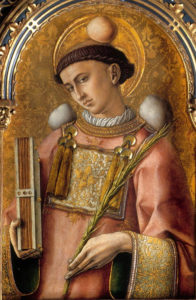
Saint Stephen. Image Credit: Carlo Crivelli, 1476
By that song, today would be French Hen Day…which doesn’t really make sense. Hens in France come in many breeds just like any other country that raises chickens, donc les poules françaises ne sont pas vraiment diffĂ©rentes de celles des autres pays…but anyway, I’m getting off subject!
The Third Day of Christmas should be special, right? Based on the three-part Trinity alone, not to mention 3 days Jesus was in the tomb prior to Resurrection…but it actually isn’t so much. In Western liturgical churches (Catholic, Anglican, Lutheran, etc.) it isn’t really anything. In Eastern churches, it’s the feast day for Saint Stephen–you know, the proto-Christian martyr, whose death is recorded in Acts 7–while St. Stephen’s is Dec. 26th in Western churches. Not exactly a cheery memory is that, not very “Christmasy” celebratory–though someone could write a blog post that discusses in detail how the babe in the manger comes along with the crucifixion and resurrection and even, yes, the eventual martyrdom, first of Stephen, and eventually of many others. That someone would not be me. Not today.
I would like to comment though that Stephen can get associated with Christmas simply because of the date he is remembered–and please note, Acts 7 does not say when Stephen died. December 26th/27th was simply the date some of his relics were moved to a different location–around 400 years after he died. So that’s the date he is remembered. Which seems kinda random, right?
Another (at least seemingly) random date that occurred in Christian history on December 27th was something called today the Flushing Remonstrance. This title refers to a petition drafted in 1657 in the former Dutch colony in what is today the state of New York. This document, which was a reaction against the fact the Dutch Reformed Church was the only official religion at that time in the New Netherlands colony, is credited by some to be the very first time religious liberties were affirmed in writing in North America (only 361 years ago đ ). Which by apparent coincidence, seems to be rather the mirror image of the martyrdom of Stephen, doesn’t it?

The Flushing Remonstrance. Credit: New York State Archives
So what is this day? The Third Day of Christmas, without other meaning? A day to remember Saint Stephen’s martyrdom? A day to remember religious freedom? Trois Poules Françaises Day?
Please keep in mind that as random or opposite the associations of the Third Day of Christmas can be in our world, think of how such associations could be even more unexpected in a fantasy world. If your fantasy world has a savior like Jesus, is the birth of the savior specifically remembered and celebrated every year? It would not have to be. Perhaps in another world, with another set of cultures, they would only celebrate the death and not the birth. Or perhaps they would celebrate over a period of time, every day equally important as the others.
If celebrated every year on a particular day, that day could be associated with other days we don’t associate Christmas with in our world. If there are “days of Christmas” in a story world, the number of them could be a very different than the number of them in our world–say seven, or ten, or forty (and of course “Christmas” should almost certainly have a different name). And…the Third Day might indeed be very special. It might even by the most important day in the season, perhaps because of tying a resurrection back to the birth, Easter in effect coming during the Christmas season.
And this kind of unexpected aspects of holidays isn’t necessarily limited to fantasy–in futuristic science fiction worlds, where planets are inhabited that have years of different length than Earth, perhaps Christmas would be celebrated every 365 days (something I seem to recall Lelia Rose Foreman does in her Shatterworld Trilogy, which I publish in a single volume as A Shattered World), even if a year were longer or shorter. Which would mean a liturgical calendar would be superimposed on a secular one, making Christmas come at a different time every year! (Rather like how Ramadan and Islamic holidays change every year.) And new worlds would of course create their own holidays that could be associated with Christmas by accident–perhaps the Christmas season on a sci fi world would embrace both Christmas and the equivalent of Independence Day!
So when you’re building story worlds, consider your holidays. Use your holidays, even your Christmases (if you have any) to show how unique your story world is.
And by the way, a very Merry Third Day of Christmas to you all!


































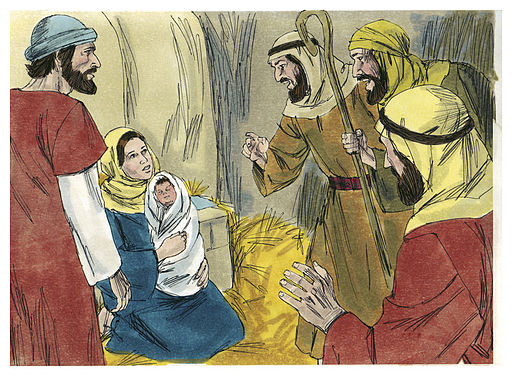
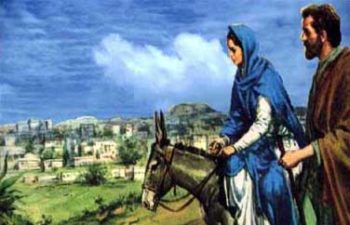

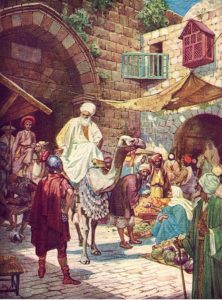
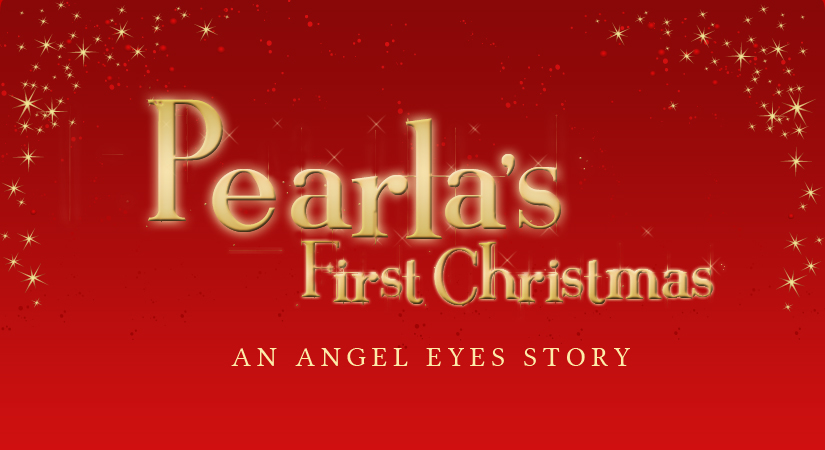
 Shannon Dittemore is an author of young adult fiction. She has an overactive imagination and a passion for truth. Her lifelong journey to combine the two is responsible for a stint at Portland Bible College, performances with local theater companies, and a love of all things literary. When she isnât writing, she spends her days with her husband, Matt, imagining things unseen and chasing their two children around their home in Northern California.
Shannon Dittemore is an author of young adult fiction. She has an overactive imagination and a passion for truth. Her lifelong journey to combine the two is responsible for a stint at Portland Bible College, performances with local theater companies, and a love of all things literary. When she isnât writing, she spends her days with her husband, Matt, imagining things unseen and chasing their two children around their home in Northern California.
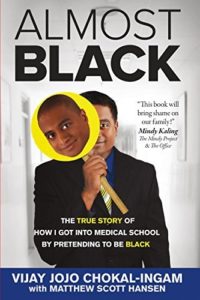 When it comes to the topic of diversity, I love referring to Vijay Jojo Chokal-Ingamâs book, â
When it comes to the topic of diversity, I love referring to Vijay Jojo Chokal-Ingamâs book, â Letâs face it: Iâd rather the person whoâs going to operate on my heart to, at minimum, know where my heart is located.
Letâs face it: Iâd rather the person whoâs going to operate on my heart to, at minimum, know where my heart is located. See, Iâm allergic to bad acting. My eyes roll into the back of my head. I sigh. My legs shift from side to side. And most times, when I am exposed to bad acting, my brain automatically goes to find the schematics of H. G. Wellsâ time machine so I can get back the ninety minutes of my life I just wasted.
See, Iâm allergic to bad acting. My eyes roll into the back of my head. I sigh. My legs shift from side to side. And most times, when I am exposed to bad acting, my brain automatically goes to find the schematics of H. G. Wellsâ time machine so I can get back the ninety minutes of my life I just wasted.


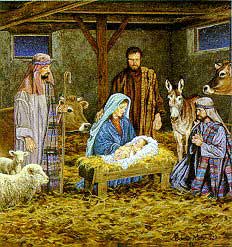

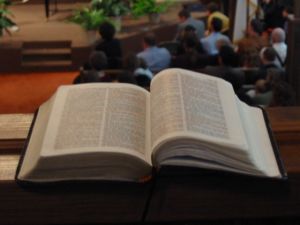 There’s more: Simeon, speaking prophecy over baby Jesus when his parents brought Him to be circumcised. John the Baptist, yet unnamed, jumping in his mother’s womb at the sound of the just-pregnant Mary’s voice. Elizabeth, blessing Mary because she “believed that there would be a fulfillment of what had been spoken to her by the Lord,” though apparently Mary had yet to tell Elizabeth about the angel and his message.
There’s more: Simeon, speaking prophecy over baby Jesus when his parents brought Him to be circumcised. John the Baptist, yet unnamed, jumping in his mother’s womb at the sound of the just-pregnant Mary’s voice. Elizabeth, blessing Mary because she “believed that there would be a fulfillment of what had been spoken to her by the Lord,” though apparently Mary had yet to tell Elizabeth about the angel and his message.
 In the book, these concepts are shown most clearly in the way the Xua (the invading aliens) use time travel to their advantage. The good aliens (Aerithin and his rebels) are trying to save the human race from extinction; the bad aliens (letâs call them the Military Xua) want to take over Earth, claim it for themselves, and kill any human who gets in their way. Although their motive is not explained in book one, it will be revealed in book two and, trust me, the Military Xua have a creepy motive.
In the book, these concepts are shown most clearly in the way the Xua (the invading aliens) use time travel to their advantage. The good aliens (Aerithin and his rebels) are trying to save the human race from extinction; the bad aliens (letâs call them the Military Xua) want to take over Earth, claim it for themselves, and kill any human who gets in their way. Although their motive is not explained in book one, it will be revealed in book two and, trust me, the Military Xua have a creepy motive.








 So is the âdiversity agendaâ really about âgrowing up,â or is there an ideological component that makes the movement less than virtuous? Even more importantly for Christians, are the Hugo awards, the sweeping wins of female creatives, the emphasis on multicultural inclusion, and N. K. Jemisinâs trifecta really a good example of biblical diversity?
So is the âdiversity agendaâ really about âgrowing up,â or is there an ideological component that makes the movement less than virtuous? Even more importantly for Christians, are the Hugo awards, the sweeping wins of female creatives, the emphasis on multicultural inclusion, and N. K. Jemisinâs trifecta really a good example of biblical diversity? Whereas the Gospel is aimed at all people groups, the Church is unified around a single Person and theme. The Apostle Paul wrote:
Whereas the Gospel is aimed at all people groups, the Church is unified around a single Person and theme. The Apostle Paul wrote: For example,
For example, 


